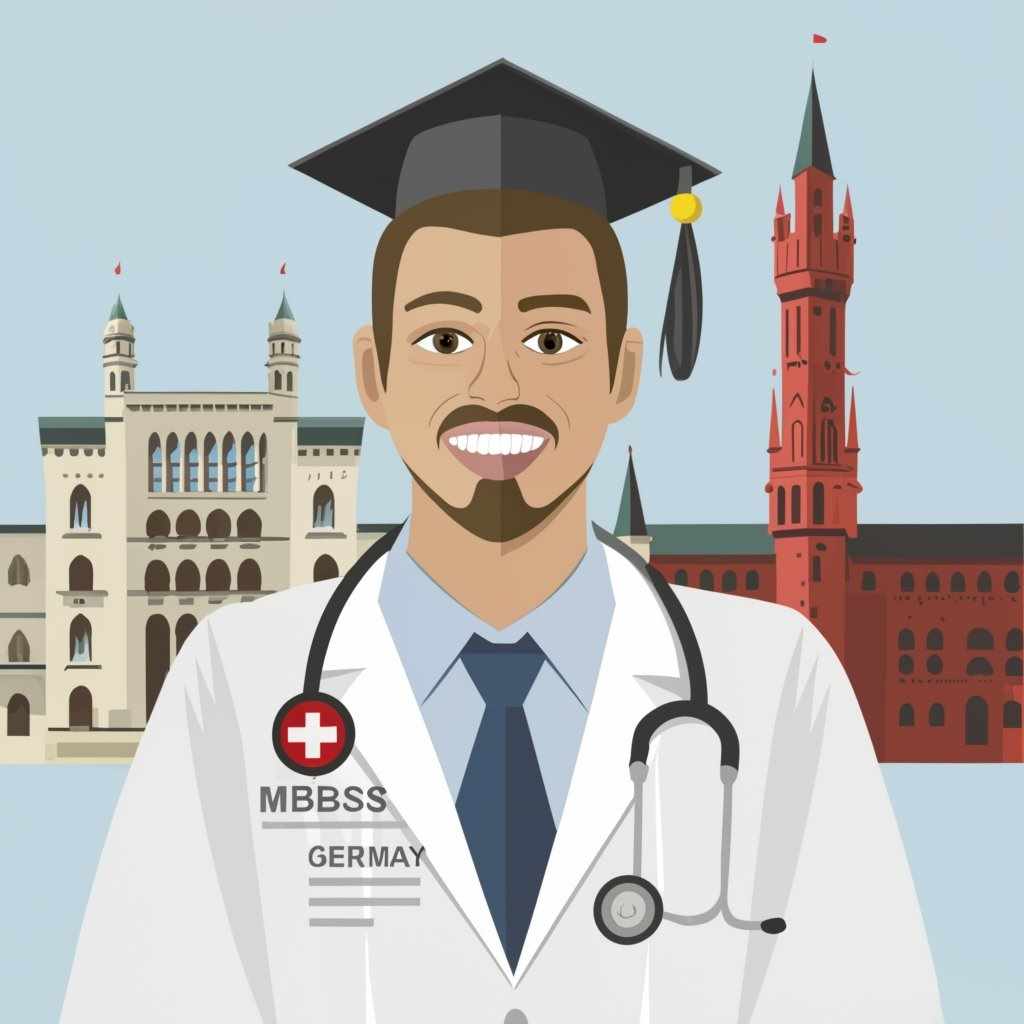
Embarking on a journey to pursue a Medical Degree in Germany can be a transformative experience, opening doors to world-class education and global opportunities. In this comprehensive guide, we will delve into the intricacies of the German education system, focusing on the top universities offering MBBS programs. From admission requirements to the unique advantages of studying in Germany, let’s explore why pursuing an MBBS in Germany is a compelling choice for aspiring medical professionals.
1. The German Education System: A Overview
Germany is renowned for its rigorous and high-quality education system. The higher education landscape is structured, with universities, universities of applied sciences, and technical universities. MBBS programs are primarily offered by medical faculties within universities, each with its distinct strengths and specialties.
2. Why Germany for MBBS?
Germany boasts a stellar reputation in the field of medicine, with cutting-edge research, state-of-the-art facilities, and a commitment to excellence. The MBBS programs are conducted in English, making them accessible to international students. Moreover, the emphasis on practical training and research opportunities sets German medical education apart.
3. Top Universities for MBBS in Germany
Heidelberg University – Pinnacle of Medical Education
Heidelberg University, with its rich history dating back to 1386, stands as a beacon of academic excellence. The Faculty of Medicine at Heidelberg is renowned for its innovative teaching methods and research contributions. The curriculum combines theoretical knowledge with hands-on clinical experience, preparing students for the dynamic healthcare landscape.
Admission Requirements at Heidelberg University
To secure a spot at Heidelberg University’s MBBS program, prospective students must meet specific admission criteria. Proficiency in English, academic transcripts, and a satisfactory score on the Medical College Admission Test (MCAT) are essential. Additionally, a strong letter of motivation and letters of recommendation enhance the chances of acceptance.
Charité – Universitätsmedizin Berlin – Bridging Tradition and Modernity
Charité, affiliated with Humboldt University, is one of Europe’s largest university hospitals, offering a unique blend of tradition and modernity. The medical faculty at Charité is at the forefront of medical research, consistently pushing the boundaries of healthcare innovation. Students benefit from exposure to diverse clinical cases and a multicultural environment.
Application Process at Charité – Universitätsmedizin Berlin
Prospective students seeking admission to Charité’s MBBS program must navigate a competitive application process. This includes submitting academic transcripts, language proficiency certificates (English and German), and participating in an interview. A strong academic background, extracurricular activities, and a genuine passion for medicine enhance the likelihood of acceptance.
4. Advantages of Pursuing MBBS in Germany
Global Recognition and Accreditation
German medical degrees are globally recognized, opening doors for graduates to practice medicine worldwide. The programs are accredited by international medical boards, ensuring that students receive education of the highest standards.
Tuition-Free Education
One of the most compelling aspects of studying in Germany is the absence of tuition fees for many public universities. This makes pursuing an MBBS in Germany an economically viable option, especially for international students.
Multicultural Environment and Networking Opportunities
Germany’s multicultural society creates an inclusive learning environment, fostering cross-cultural interactions. This diversity is invaluable for future healthcare professionals, preparing them to work in a globalized world. Networking opportunities abound, with access to renowned medical professionals and researchers.
5. Challenges and How to Overcome Them
Language Barrier
While MBBS programs are conducted in English, proficiency in German is essential for effective communication with patients during clinical placements. Universities often provide language courses, and students are encouraged to learn German to enhance their clinical skills and assimilate into the local culture.
Cultural Adjustment
Adapting to a new cultural and social environment can be challenging. Universities offer support services, including mentorship programs and cultural integration initiatives, to help international students navigate these adjustments successfully.
Conclusion:
Pursuing an MBBS in Germany is a transformative journey that combines academic rigor with a rich cultural experience. The top universities mentioned in this guide offer a gateway to world-class medical education, equipping students with the skills and knowledge needed for a successful medical career. As you consider your options, weigh the advantages, challenges, and unique offerings of each institution, ensuring that your choice aligns with your aspirations and goals in the field of medicine.








